School of Criminology, Sociology and Social Policy
Conversation Analysis Research in Autism (CARA)
Conversation Analysis Research in Autism (CARA) is a forum for researchers who use conversation and/or discourse analysis to explore autism.
We welcome new members. If you would like to join our group please email us at mjo14@le.ac.uk. We are also happy to advertise research projects, conferences, books or other activities if they relate to CA/DA and autism. If you have something for the newsfeed, please drop us an email. If you have a new related publication, then we would like to add it to your membership profile.
FAQs
What is autism?
The term ‘autism’ is long-standing and was first used by Paul Bleuler in 1910 when describing schizophrenia. In 1943, Leo Kanner developed the term further to characterise children with cognitive and affective symptoms, extreme aloneness and the preservation of sameness.
More recently, autism has been referred to as ‘Autistic Spectrum Disorder’ (ASD), first coined by Lorna Wing in 1981, to reflect the diversity of presentations, which is more generally accepted now in the DSM-5. ASD is a complex condition which presents with various difficulties in daily functioning. It often described as a neuro-developmental condition as it indicates impairments in the brain or central nervous system.
ASD is considered a life-long condition with no known cure or universally agreed upon cause. It presents in different ways in an individual’s life and in some cases can be difficult to diagnose. ASD encapsulates a range of different presentations with some individuals being high functioning and others having severe learning difficulties and developmental delay.
Nonetheless, it is fairly well-established that the condition is characterised by a ‘triad of impairments’ which are used to help with diagnosis.
This triad consists of:
- Qualitative impairments in reciprocal social interaction (difficulties in social interaction/understanding).
- Qualitative impairments in communication.
- Restricted repetitive and stereotyped patterns of behaviour, interests and activities (limited flexibility in thinking).
What is CA?
Conversation analysis was pioneered by Harvey Sacks in the early 1970s, and his work was continued by Emanuel Schegloff and Gail Jefferson. In his pioneering work, Sacks noted that there is an underlying organisation in the way interaction unfolds on a turn-by-turn basis. It was the turn-taking nature of conversation that was of primary interest.
Conversation analysis gives attention to detail in naturally occurring activities and analyses mundane and institutional talk as a systematic and organised phenomenon. Thus, conversation analysis is the study of talk-in-interaction. Conversation analysis, in recent times, has developed an interest in institutional talk and has a lot to offer in terms of how we understand institutions.
Our answer to this question is based on materials found in the book by Robin Wooffitt. You may find this to be a useful reference:
- Wooffitt, R. (2005). Conversation Analysis and Discourse Analysis: A Comparative and Critical Introduction. London: SAGE Publications.
Other useful references for conversation analysis include:
- Antaki, C. (2011). Applied Conversation Analysis: Intervention and Change in Institutional Talk. Hampshire: Palgrave MacMillan.
- Hutchby, I. and Wooffitt, R. (2008). Conversation Analysis (Second Edition). Oxford: Blackwell Publishers.
- Sacks, H. (1992). Lectures on Conversation (Vols. I & II, edited by G. Jefferson). Oxford: Basil Blackwell.
What is DA?
Discourse analysis grew out of concerning questions regarding the sociology of scientific knowledge and was interested in exploring the social processes that informed the ways in which the scientific community made knowledge claims as objective or factual.
Early discourse work is credited to Gilbert and Mulkay who noticed that talk is full of contradictions and variability. Thus key features of discourse analysis (DA) are that it focuses on the functional orientation of language use and acknowledges variability in accounts. It also examines broad regularities in the way in which such accounts are constructed.
Discourse analysts claim that the language we use and the way we use it is not determined by an objective set of properties of the events. They argue that language is performative in the sense that people ‘do’ things with words, such as complain, invite, question, account, justify and so forth. There are many different types of discourse analysis, with different epistemological and ontological assumptions. These include critical discourse analysis, Bhaktian discourse analysis, discursive psychology, and Foucauldian discourse analysis, among others. We recommend you consult a textbook for further information.
Our answer to this question is based on the materials found in the book by Robin Wooffitt. You may find this a useful reference:
- Wooffitt, R. (2005). Conversation Analysis and Discourse Analysis: A Comparative and Critical Introduction. London: SAGE Publications.
Other useful references for discourse analysis include:
- Fairclough, N. (1999). Linguistic and intertextual analysis within discourse analysis within discourse analysis. (pp: 183 – 212). In A. Jaworski, and N. Coupland, (Eds). The discourse reader. London: Routledge.
- Potter, J. (1996). Representing Reality: Discourse, Rhetoric and Social Construction. London: SAGE Publications.
- Potter, J. (2011). Discursive psychology and the study of naturally occurring talk. In D. Silverman (Ed). Qualitative Research (Third Edition). (pp: 187 - 207). London: SAGE Publications.
- Willig, C. (1999). Applied Discourse Analysis: Social and Psychological Interventions. Buckingham: Open University Press.
What are the similarities/differences between CA and DA?
For different reasons, discourse analysis and conversation analysis show that language can be studied in its own right. Conversation analysts show that ordinary language can be analysed to look at how we perform interpersonal actions and how these actions are organised socially. Discourse analysts show that language is a consequence in that accounts and descriptions cannot be treated as neutral representations of an objective social reality.
In conversation analysis, the function of language is looked at in terms of the design of utterances and their location within the turn-by-turn development of interaction. In discourse analysis, the function of discourse is much broader. While they have some interest in specific conversational activities and the sequential context, they are not restricted to this technical level.
Both discourse analysis and conversation analysis are qualitative in nature and analyse the functional and sense-making properties of language. However, these similarities stop at this broad level, and when examined in depth the intricate differences emerge.
Both conversation and discourse analysis reflect the concerns of ethnomethodology. Ethnomethodology, pioneered by Garfinkel (1967), is primarily concerned with how social action is accomplished through the competencies of participants. Much of social life is mediated through spoken and written communication, and, therefore, language is central to ethnomethodology in sociology. However, the conversation work of Sacks focuses on the communicative competencies that inform ordinary conversation and looks more objectively at the structures of interaction, whereas ethnomethodology is somewhat interpretative.
Our answer to this question is based on the materials found in the book by Robin Wooffitt. You may find this a useful reference:
- Wooffitt, R. (2005). Conversation Analysis and Discourse Analysis: A Comparative and Critical Introduction. London: SAGE Publications.
Why are CA and/or DA useful for researching autism?
The use of CA and/or DA is a relatively new way by which to methodologically and theoretically approach the study of autism and its various associated symptoms.
Historically, autism has been studied through the lens of methodological perspectives that have assumed it to be an ahistorical ‘thing’, existing outside the discursive field. More generally, in the broader autism literature, autism has primarily been represented as consisting of a set of ‘scientific facts’, which can be identified and treated by ‘experts’.
From a CA and/or DA perspective, autism can be reframed as a construct bounded within and contingent upon the discursive practices that make its naming, treating, and representing possible. Taking up a CA and/or DA approach allows an analyst to examine how everyday discursive practices make possible identifying, labelling, and treating children and adults diagnosed with ASD. Furthermore, such an approach can provide a nuanced understanding of the interactional practices that take place between individuals with autism and others, potentially impacting our understanding of how ‘behaviours’ come to be identified as ‘abnormal’ or ‘normal’ and are ultimately managed in everyday talk and text.
A useful resource for considering how a more social constructionist orientation may inform the study of autism is:
- Nadesan, M. H. (2005). Constructing autism: Unraveling the ‘truth’ and understanding the social. New York, NY: Routledge.
What is the Jefferson transcription system?
Conversation analysts and many discourse analysts employ the Jefferson system of transcription notation. This is because in conversation analysis the transcripts are designed not only to capture what was said, but also the way in which it is said. Therefore the transcripts provide a detailed version of the complex nature of interaction.
Useful references for Jefferson transcription include:
- Jefferson, G. (2004). Glossary of transcript symbols with an introduction. In G. H. Lerner (Ed). Conversation Analysis: Studies from the First Generation. (pp: 13-31). Amsterdam: John Benjamins.
- Hepburn, A. and Bolden, G. B. (2013). Transcription. In Sidnell, J. & Stivers, T. (Eds). Blackwell Handbook of Conversation Analysis (pp 57-76). Oxford: Blackwell.
There are many symbols used in the Jefferson transcription system and we provide you with some of the most common.
Transcription notation
- (.) A full stop inside brackets denotes a micro pause, a notable pause but of no significant length.
- (0.2) A number inside brackets denotes a timed pause. This is a pause long enough to time and subsequently show in transcription.
- [ Square brackets denote a point where overlapping speech occurs.
- > < Arrows surrounding talk like these show that the pace of the speech has quickened
- < > Arrows in this direction show that the pace of the speech has slowed down
- ( ) Where there is space between brackets denotes that the words spoken here were too unclear to transcribe
- (( )) Where double brackets appear with a description inserted denotes some contextual information where no symbol of representation was available.
- Under When a word or part of a word is underlines it denotes a raise in volume or emphasis
- ↑ When an upward arrow appears it means there is a rise in intonation
- ↓ When a downward arrow appears it means there is a drop in intonation
- → An arrow like this denotes a particular sentence of interest to the analyst
- CAPITALS where capital letters appear it denotes that something was said loudly or even shouted
- Hum(h)our When a bracketed ‘h’ appears it means that there was laughter within the talk
- = The equal sign represents latched speech, a continuation of talk
- :: Colons appear to represent elongated speech, a stretched sound
People
Dr Michelle O'Reilly
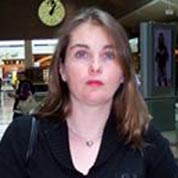 Director CARA
Director CARA
Michelle O’Reilly is a Senior Lecturer of Psychology at the University of Leicester, working for the Greenwood Institute of Child Health. Her joint activities between the university and Leicestershire Partnership NHS Trust focus on qualitative research in child mental health. The focus of her research has been on family therapy interactions and child mental health assessments. Michelle uses discourse analysis and conversation analysis to look at the social construction of mental health and to explore in detail the interactions between health professionals, parents and children. Her current project is a collection of approximately 42 hours of psychiatric data with 28 families attending their first appointment at the Child and Adolescent Mental Health Service (CAMHS). Within this data there are nine cases where autism is discussed and this is being explored in detail.
Publications related to autism
- Karim, K., Cook, L., and O’Reilly, M. (2012). Diagnosing Autistic Spectrum Disorder in the age of austerity. Child: Care, Health and Development, doi:10.1111/j.1365-2214.2012.01410.x
- O’Reilly, M., Cook, L., and Karim, K. (2012). Complementary or controversial care? The opinions of professionals on complementary and alternative interventions for Autistic Spectrum Disorder. Clinical Child Psychology and Psychiatry, 17 (4), 602-615.
- Karim, K., Ali, A., and O’Reilly, M. (In press). A Practical Guide to Mental Health Problems in Children with Autistic Spectrum Disorder: “It’s not just their autism!. London: Jessica Kingsley Publishers
Child mental health publications
- Antaki, C., and O’Reilly, M. (2014). Either/or questions in psychiatric assessments: the effect of the seriousness and order of the alternatives, Discourse Studies, 16 (3)?
- Parker, N., and O’Reilly, M. (2013). Reflections from behind the screen: avoiding therapeutic rupture when utilising reflecting teams. The Family Journal: Counseling for Couples and Families, 21 (2), 170-179.
- O’Reilly, M. (2013). “We’re here to get you sorted”: parental perceptions of the purpose, progression and outcomes in family therapy. Journal of Family Therapy doi: 10.1111/1467-6427.12004
- O’Reilly, M. and Parker, N. (2013). ‘You can take a horse to water but you can’t make it drink’: Exploring children’s engagement and resistance in family therapy. Contemporary Family Therapy, 35 (3), 491-507
- O’Reilly, M., Vostanis, P., Taylor, H., Day, C., Street, C., and Wolpert, M. (2012). Service user perspectives of multi-agency working: A qualitative study with parents and children with educational and mental health difficulties. Child and Adolescent Mental Health, X, XXX doi:10.1111/j.1475-3588.2012.00674.x
- Parker, N. and O’Reilly, M. (2012). ‘Gossiping’ as a social action in family therapy: The pseudo-absence and pseudo-presence of children. Discourse Studies, 14 (4) 1-19.
- O’Reilly, M. and Parker, N. (2012) “She needs a smack in the gob”: negotiating what is appropriate talk in front of children in family therapy. Journal of Family Therapy doi: 10.1111/j.1467-6427.2012.00595.x
- Vostanis, P. O’Reilly, M. Taylor, H., Day, C., Street, C., Wolpert, M., and Edwards, R. (2012). What can education teach child mental health services? Practitioners’ perceptions of training and joint working. Emotional and Behavioural Difficulties, 17 (2), 109-124.
- O’Reilly, M., Dogra, N. Williams, R., Edwards, R., and Vostanis, P. (2010). Turning policy into practice: an evaluation for and delivery of education and training for the staff of specialist child and adolescent mental health services in England. Evidence and Policy, 6 (4), 505-525
- Hutchby, I. and O’Reilly, M. (2010). Children’s participation and the familial moral order in family therapy. Discourse Studies, 12 (1), 49-64.
- Yadav, V., O’Reilly, M. and Karim, K. (2010). Secondary school transition: does mentoring help ‘at risk’ children? Community Practitioner, 83 (4), 24-28.
- O’Reilly, M., Taylor, H., and Vostanis, P. (2009). “Nuts, schiz, psycho”: an exploration of young homeless people’s perceptions and dilemmas of defining mental health. Social Science and Medicine, 68, 1737 - 1744
- O’Reilly, M. (2008). ‘What value is there in children’s talk?’ Investigating family therapist’s interruptions of parents and children during the therapeutic process. Journal of Pragmatics. 40: 507-524.
- O’Reilly, M. (2008). “I didn’t violent punch him”: Parental accounts of punishing children with mental health problems. Journal of Family Therapy. 30: 272-295.
- Edwards, R., Williams, R., Dogra, N., O’Reilly, M., and Vostanis, P. (2008). Facilitating and limiting factors of training available to staff of Specialist CAMHS. The Journal of Mental Health Training, Education and Practice, 3 (3), 22-31.
- O’Reilly, M. (2007). Who’s a naughty boy then? Accountability, family therapy and the ‘naughty’ child. The Family Journal: Counseling and therapy for couples and families. 15 (3): 234-243.
- O’Reilly, M. (2006). Should children be seen and not heard? An examination of how children’s interruptions are treated in family therapy. Discourse Studies. 8 (4): 549-566.
- Johnson, R., O’Reilly, M., and Vostanis, P. (2006). Caring for children with learning disability who present problem behaviours: a maternal perspective. Journal of Child Health Care 10 (3): 188-198.
- O’Reilly, M. (2005). The complaining client and the troubled therapist: A discursive investigation of family therapy. Journal of Family Therapy 27: 371-393.
- O’Reilly, M. (2005). Active Noising: The use of noises in talk, the case of onomatopoeia, abstract sounds and the functions they serve in therapy. TEXT 25 (6): 745-761.
- O’Reilly, M. (2005). “What seems to be the problem?” A myriad of terms for mental health and behavioural concerns. Disability Studies Quarterly. 25 (4) (online journal article) www.dsq-sds.org
- Anderson, L., Vostanis, P., and O’Reilly, M. (2005). "Three-year follow-up of a family support service cohort of children with behavioural problems and their parents" Child Care, Health & Development. 31 (4): 469-477.
Relevant conference talks
- O’Reilly, M., Karim, K., and Parker, N. (2013). “So when you ↓said that you were going to take a knife to yourself (0.99). Yeah (1.15) what were you ↓hoping would happen?”: an exploration of ‘you said’ questions in clinical encounters. Paper presented at ‘CA and Psychotherapy’ July conference. York: University of York.
- O’Reilly, M., Parker, N., Stafford, V., and Karim, K. (2012). “I think the University is doing some project”: The challenge of convincing the NHS of the value of CA. Paper presented at ‘Discourse, communication, conversation: An anniversary conference’ March Conference. Loughborough: Loughborough University.
- O’Reilly, M. (2007). Constructing children’s half-membership through question-answer sequences in family therapy. Paper presented at ‘Conversation Analysis of Questions and Answers: December conference’, Loughborough University.
- O’Reilly, M. and Taylor, H. (2006). ‘T’ be ‘onest wiv ya: Explorations of orientations to honesty in the face of authority figures. Paper presented at ‘International Conference on Conversation Analysis: May conference: Helsinki University.
- Anderson, L., Vostanis, P. and O’Reilly, M. (2005). ‘Three Year Follow-Up of a Family Support Service Cohort of Children with Behavioural Problems and their Parents: Parental perspectives.’ Poster presented at Faculty of Child and Adolescent Psychiatry Residential Meeting’: The Royal College of Psychiatrists. September Conference: Harrogate International Centre.
- O’Reilly, M. (2005). ‘What Seems to be the Problem? Locating the Child as the Problem in Family Therapy’. Paper presented at ‘The Research Fair’ : June Fair in conjunction with Leicestershire NHS Trust.
- Anderson, L., Vostanis, P., and O’Reilly, M. (2005). "Three-year follow-up of a family support service cohort of children with behavioural problems and their parents" Poster presented at ‘The Royal College of Psychiatrists Annual Meeting’. June Conference: Edinburgh International Centre.
- O’Reilly, M. (2003). The Complaining Client and the Troubled Therapist. Paper presented at ‘The Research Fair’: December fair in conjunction with Leicestershire NHS Trust.
- O’Reilly, M. (2001). ‘Accidental Violence’: Constructing Disability and Responsibility in Family Therapy. Paper presented at ‘language and therapeutic interaction: International Conference in Discourse Analysis and Conversation Analysis.’ August Conference: Brunel University.
Dr Jessica Lester
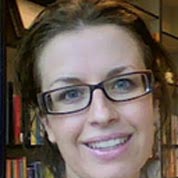 Associate Director CARA
Associate Director CARA
Jessica Nina Lester is a Professor of Qualitative Methodology at Indiana University in Bloomington, Indiana in the US. Much of her research focuses on how social interactions shape individual and collective experiences in schools, clinics, and communities. Within this line of inquiry, Dr Lester uses a form of discourse analysis that draws upon conversation analysis and discursive psychology, analysing both textual and conversational data. Over the last decade, she has collected over 300 hours of paediatric therapy data with therapists and autistic children, as well as data involving doctor-child patient interactions and teachers and children. Her current analysis is focused upon:
- the varied constructions of disabilities;
- the ways in which “problematic” behaviours are dealt with in and through the clinical and educational talk;
- the management of unexpected communicative patterns of autistic children and youth; and
- the reframing of the nonverbal communication of autistic children labels as linguistically productive.
Publications related to autism
- Lester, J. N., and Paulus, T. M. (in press). “I’m not sure I even know”: Therapists’ tentative constructions of autism. Review of Disability Studies: An International Journal.
- Lester, J. N. and Paulus, T. M. (2014). “That teacher takes everything badly”: Discursively reframing non-normative behaviors in therapy sessions. International Journal of Qualitative Studies in Education, 27(5), 641-666.
- Lester, J. N. and Paulus, T. M. (2013). “That teacher takes everything badly”: Discursively reframing non-normative behaviors in therapy sessions. International Journal of Qualitative Studies in Education, 1-25.
- Lester, J. N., and Barouch, A. (2013). Inviting the assent of children described as functionally nonverbal. In I. Paoletti, A. Duarte, I. Tomas, & F. Menéndez, Ethics in social science research. Cambridge Scholars Press.
- Lester, J. N. (2012). A discourse analysis of parents’ talk around their children’s autism labels. Disability Studies Quarterly. 32(4), Art. 1.
- Lester, J. N. and Paulus, T. M. (2012). Performative acts of autism. Discourse & Society, 12(3), 259 - 273.
- Lester, J. N. (2012). Researching the discursive function of silence: A reconsideration of the normative communication patterns in the talk of children with autism labels. In G. S. Cannella and S. R. Steinberg (Eds.), Critical qualitative research reader (pp. 329-340). New York, NY: Peter Lang.
Expert clinical panel
Dr Khalid Karim
Consultant Child and Adolescent Psychiatrist (Senior Teaching Fellow, University of Leicester)
Dr Khalid Karim is a Consultant Child and Adolescent Psychiatrist for Leicestershire NHS Partnership Trust, and Senior Teaching Fellow for the University of Leicester. Khalid is the lead on ASD at Leicestershire Trust and works clinically with children with the condition. He has recently published a book for parents and professionals on autism and mental health with Jessica Kingsley Publishers. Khalid has a general research interest in child mental health, particularly ASD, and is currently involved in a child psychiatry project which is using CA to explore initial child mental health assessments in CAMHS.
Publications related to autism
- Karim, K., Ali, A., and O’Reilly, M. (In press). A Practical Guide to Mental Health Problems in Children with Autistic Spectrum Disorder: “It’s not just their autism!. London: Jessica Kingsley Publishers
- Karim, K., Cook, L., and O’Reilly, M. (2012). Diagnosing Autistic Spectrum Disorder in the age of austerity. Child: Care, Health and Development, doi:10.1111/j.1365-214.2012.01410.x
- O’Reilly, M., Cook, L., and Karim, K. (2012). Complementary or controversial care? The opinions of professionals on complementary and alternative interventions for Autistic Spectrum Disorder. Clinical Child Psychology and Psychiatry, 17 (4), 602-615.
Other related publications
- Dogra N and Karim K (in press) An update on Training in Diversity For Psychiatrists. In Bhattacharya R, Cross S and Bhugra D (Eds) Clinical Topics in Cultural Psychiatry. Royal College of Psychiatrists: London
- Dogra N, Ronzoni P and Karim K (in press) Migration and child mental health. In Bhugra D (Ed) Proceedings of an International Meeting on Migration. Royal College of Psychiatrists: London
- O’Reilly, M., Karim, K., Taylor, H., and Dogra, N. (2012) Parent and child views on anonymity: ‘I’ve got nothing to hide’. International Journal of Social Research Methodology, 15 (3), 211-224.
- Yadav, V., O’Reilly, M. and Karim, K. (2010). Secondary school transition: does mentoring help ‘at risk’ children? Community Practitioner, 83 (4), 24-28.
Dr Tom Muskett
Speech and Language Therapist
Dr Tom Muskett is a Senior Lecturer at Leeds Beckett University, UK. Tom is a Speech and Language Therapist with a particular clinical interest in working with children with diagnoses of autism and their families. Informed by these experiences, Tom’s research aims to explore how Conversation Analysis accounts of interactions involving such children interface with mainstream and critical/radical approaches to theorising the diagnosis, and how discursive methodologies might underpin novel and progressive approaches to professional practice.
Publications related to autism
- Muskett, T. and Body, R. (in press). The case for multimodal analysis of atypical interaction: questions, answers and gaze in play involving a child with autism. Clinical Linguistics and Phonetics.
- Muskett, T., Body, R. and Perkins, M. (2013). A Discursive Psychology critique of semantic verbal fluency assessment and its interpretation. Theory & Psychology, 23, 205-226.
- Muskett, T., Body, R., and Perkins, M. (2012). Uncovering the dynamic in static assessment interaction. Child Language Teaching Therapy, 28, 87-99.
- Muskett, T., Perkins, P., Clegg, J., and Body, R. (2010). Inflexibility as an interactional phenomenon: using conversation analysis to re-examine a symptom of autism. Clinical Linguistics and Phonetics, 24, 1-16.
Selected autism conference presentations
- Muskett T (2011) Examining language and communication in autism in context. Invited paper presented at ComSym 2011, Paris Decartes University, February 2011.
- Muskett T (2012). On saying what you see: a preliminary discursive re-examination of the ‘joint attention deficit’ in children with autism. Paper presented at CMARG/DARG International Conference, Loughborough University, March 22nd 2012.
- Muskett T (2012) Giving conversation the time it deserves: Using Conversation Analysis to facilitate social interactions involving individuals on the autism spectrum. Paper presented at Communication: The Key To Success, Edgehill University, June 15th 2012.
- Muskett T (2013) Is ‘autism’ about individuals or interactions? Invited paper presented at Demedicalising Childhood: Perspectives on Autism, Centre for the Study of Childhood and Youth, University of Sheffield, January 28th 2013.
- Muskett T (2013) When you change the method, you change the ‘disorder’: Constructionist research adventures in the field of autism studies. Paper presented at Disability UoS Inaugural Research Meeting, University of Sheffield, February 13th 2013.
- Muskett T (2013) “This is just a game... isn't it?”: Differentiating ‘pretending’ and ‘doing pretence’ in the play of a child with autism. Invited Departmental seminar presented at the School of Psychology, University of Lincoln, March 6th 2013.
- Muskett, T (2013) Autism and social play: what the experiments don’t tell you. Paper presented at Atypical Interaction: Conversation Analysis and Communication Difficulties, University of Sheffield, June 27th 2013.
Dr Nikki Kiyimba
 Senior Clinical Psychologist (Mātai Rongo New Zealand)
Senior Clinical Psychologist (Mātai Rongo New Zealand)
Dr Nikki Kiyimba currently lives and works in the Bay of Plenty in New Zealand. She provides therapy to adults with severe trauma and PTSD as well as conducting assessments for ASD and ADHD. Nikki also has a wealth of practical experience working for more than two decades as a Youth Worker, School Governor, Business Mentor, and Prison Volunteer. In addition, she has worked for Relate UK and Samaritans as a project manager developing curriculum. Nikki completed a PhD in Psychology to further her research interest in the interactions between families in therapeutic settings. Her research is informed by a social constructionist perspective favouring the analysis of intergenerational interactions in therapy environments using discursive approaches. She has developed and taught postgraduate courses in responding to trauma in both the UK and NZ. Her work in New Zealand also includes bi-cultural understandings of mental health from a holistic perspective.
Publications related to autism
- O’Reilly, M. and Parker, N. (2014). Doing Mental Health Research with Children and Adolescents: A Guide to Qualitative Methods. London: Sage.
- Parker, N., and O’Reilly, M. (2013). Reflections from behind the screen: avoiding therapeutic rupture when utilising reflecting teams. The Family Journal: Counseling for Couples and Families, 21 (2), 170-179.
- O’Reilly, M. and Parker, N. (2013). ‘You can take a horse to water but you can’t make it drink’: Exploring children’s engagement and resistance in family therapy. Contemporary Family Therapy, 35 (3), 491-507
- Parker, N. and O’Reilly, M. (2012). ‘Gossiping’ as a social action in family therapy: The pseudo-absence and pseudo-presence of children. Discourse Studies, 14 (4) 1-19.
- Hutchby, I., O’Reilly, M. and Parker, N. (2012). Ethics in Praxis: Negotiating the Role and Functions of a Video Camera in Family Therapy. Discourse Studies, 14 (6) 675-690.
- O’Reilly, M. and Parker, N. (2012) “She needs a smack in the gob”: negotiating what is appropriate talk in front of children in family therapy. Journal of Family Therapy doi: 10.1111/j.1467-6427.2012.00595.x
Dr Sushie Dobbinson
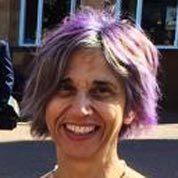 Lead Forensic Speech and Language Therapist
Lead Forensic Speech and Language Therapist
I am currently working as the lead Forensic Speech and Language Therapist at the Humber Centre, Humber Mental Health NHS Foundation Trust. I work with a range of complex and difficult to treat people, all of whom are detained under the Mental Health Act.
Currently I’m working on the development of an adult autistic spectrum conditions (ASC) diagnostic and treatment service for forensic patients at the Humber Centre. This is a medium secure psychiatric hospital where many of the patients have been in long term care and hence may never have been assessed for ASCs, as the diagnosis did not appear in the DSM manuals until 1994. I also work for the Adult Asperger’s Diagnosis service as part of the community team for Humber Mental Health NHS Foundation Trust.
My interest in ASCs began when I studying for my BA (Hons) in Linguistics and Social Anthropology at Manchester University between 1988 and 1991. I registered for my PhD with the University of Sheffield in 1994 on the topic of Repetitiveness and Formulaicity in the Conversation of Adults with ASCs, supervised by Professor Jill Boucher and Professor Mick Perkins. While studying I presented papers at conferences in Barcelona, Hong Kong, Toronto, UCL, Glasgow and Durham Universities on the topic of language use in adults with autism. At Toronto University I sat on an expert panel on Disorder in Talk. I was a member of the York University Disordered Conversation Research Group from 1996 – 2003. I also worked as a research assistant, collecting and collating date for the Pre School Language Scales III assessments.
I have taught linguistics and phonetics at the Universities of Huddersfield, Sheffield and the Open University. In 1997 I was appointed as a University Lecturer in Linguistics at York St John’s where I taught phonetics, psycholinguistics and general linguistics and became senior lecturer and Head of Programme there in 1999.
In 2005, I qualified as an SLT and since then have incorporated research into my work. I am currently working on an NHS approved project entitled Conversation Analysis of Confabulation among Patients on a Forensic Learning Disabilities Ward, looking at how non-intentional verbal deception arises in talk between clinicians and patients.
Publications relating to autism
- 2017: Sushie Dobbinson, "The interaction is the work: Rehabilitating risk in a forensic patient with Autism Spectrum Disorder and Learning Disability" in A Practical Guide to Social Interaction Research in Autism Spectrum Disorders (forthcoming)
- 2016: Sushie Jayne Dobbinson, "Systemizing and empathy in forensic ASD talk", Advances in Autism, Vol. 2 Issue: 4, pp.179-190, https://doi.org/10.1108/AIA-05-2016-0013
- 2016: Sushie Dobbinson, "Conversation with an adult with features of Autism Spectrum Disorder" in secure care in the Palgrave Handbook of Adult Mental Health Chapter 22
- 2006: Michael R Perkins; Sushie Dobbinson; Jill Boucher; Simone Bol; Paul Bloom "Lexical knowledge and lexical use in autism." Journal of autism and developmental disorders 2006;36(6):795-805.
- 2005: Sushie Dobbinson, "Phonetics in Introducing Language in Use." Oxford: Routledge.
- 2004: Kate Trott; Sushie Dobbinson, Patrick Griffiths (Eds) "Child Language Reader". London: Routledge
- 2003: Sushie Dobbinson, Mick Perkins, Jill Boucher, "The interactional significance of formulas in autistic language". Clinical linguistics and phonetics 2003;17(4-5):299-307.
- 1998: S Dobbinson, M R Perkins, J Boucher "Structural patterns in conversations with a woman who has autism." Journal of communication disorders 1998;31(2):113-33; quiz 133-4.
Dr Katie Denman
 Clinical Psychologist
Clinical Psychologist
Katie Denman is a Clinical Psychologist. Katie has worked clinically in a number of settings including child mental health and children with learning disabilities and been in involved in publications of research with children. Katie is also trained in the Foundation level of Family Therapy accredited by the Association of Family Therapy. Currently Katie works in a Child Development Centre with children with neuro-developmental conditions including Autism Spectrum Condition and their families.
Katie has now completed her doctoral research exploring family talk around a child’s behaviour before they have been given a diagnosis of ASC drawing on a synthetic approach of discursive psychology with conversational analysis tools. Katie has developed an interest in how whole families make sense of a child’s behaviour before it has been labelled by professionals and what this can add to our knowledge of what discourses families are bringing to ASC assessments.
Publications related to autism
- Denman, K., Smart, C., Dallos, R. and Levett, P. (2016) How families make sense of their child's behaviour when on an autism assessment and diagnosis waiting list. Journal of Autism and Developmental Disorders. DOI:10.1007/s10803-016-2873-7
Members list
Gail Fox Adams
Gail Fox Adams is a doctoral student of applied linguistics at UCLA, a research assistant at the UCLA Center for Culture and Health, and a trainee of the FPR-UCLA Center for Culture, Brain and Development. She has a master's degree in linguistics, bachelors' degrees in English literature and Spanish, and experience managing and teaching in community-based literacy programs. Adams uses sociocultural approaches to study pedagogical and therapeutic interactions, especially in terms of language acquisition, language socialization and wellness. The focus of her dissertation is how therapists teach social interaction as a pathway to language use for minimally-verbal boys with autism.
Publications relating to autism
- Bromley, E., Adams, G.F. [second author], Brekke, J.S. A method for linking naturalistic behaviors to research constructs of neurocognition in schizophrenia. The Journal of Neuropsychiatry and Clinical Neuroscience, 24(1): 125-140.
- Adams, G.F. Videotape analysis studies. In Volkmar, F.R. Encyclopedia of Autism Spectrum Disorders. Springer Online Press. URL: http://springerreference.com/docs/html/chapterdbid/344276.html.
- Dean, M., Adams, G.F. [co-author] & Kasari, C. How narrative difficulties build peer rejection: A discourse analysis of a girl with autism and her female peers. Discourse Studies, 15(2): 147-166.
Henry Angulo
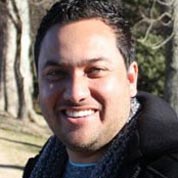 Henry Angulo is an Associate Professor at the Department of Modern Languages at University of Costa Rica. He is currently a doctoral candidate at the Department of Speech and Hearing Science at the University of Illinois at Urbana-Research. Framed within the social model of disability and the neurodiversity paradigm, Henry’s research draws on discourse and conversation-analytic approaches to understand the experience of autism, particularly among autistic bilinguals. His current research work focuses on multimodal resources deployed by Spanish/English bilinguals on the autism spectrum in everyday conversation.
Henry Angulo is an Associate Professor at the Department of Modern Languages at University of Costa Rica. He is currently a doctoral candidate at the Department of Speech and Hearing Science at the University of Illinois at Urbana-Research. Framed within the social model of disability and the neurodiversity paradigm, Henry’s research draws on discourse and conversation-analytic approaches to understand the experience of autism, particularly among autistic bilinguals. His current research work focuses on multimodal resources deployed by Spanish/English bilinguals on the autism spectrum in everyday conversation.
Publications related to autism
- Angulo-Jiménez, H., and DeThorne, L. (2019). Narratives About Autism: An Analysis of YouTube Videos by Individuals Who Self-Identify as Autistic. American Journal of Speech-Language Pathology, 28(2), 569–590. https://doi.org/10.1044/2018_AJSLP-18-0045
- Angulo, H. (2018). Bilingualism and Autism: Addressing Parents’ Frequently Asked Questions. Perspectives of the ASHA Special Interest Groups, 3(2), 98–105.
- Angulo, H. (2018). Bilingüismo y autismo: Respuestas a preguntas frecuentes de los padres de familia. Perspectives of the ASHA Special Interest Groups, 3(2), 1–8.
Relevant conference presentations
- Angulo, H; Chan, Michele; and DeThorne (November 2018). Life is a stage: Autistic perspectives on neurotypicality. Presented at the ASHA Convention 2018, Boston, Massachusetts
- Angulo, H., and DeThorne, L. (November 2017). Narratives about Autism: An Analysis of Vlogs by Individuals Who Self-Identify as Autistic. Presented at the ASHA Convention 2017, Los Angeles, CA
- Angulo, H., and DeThorne, L. (May 2017). Narratives about Autism: An Analysis of Weblog Entries by Individuals Who Self-Identify as Autistic. Presented at the Thirteenth International Congress of Qualitative Inquiry, University of Illinois at Urbana-Champaign.
Kristen Bottema-Beutel
 I received a Ph.D. in the joint doctoral program in special education from UC Berkeley and San Francisco State University. My research focuses on three broad areas:
I received a Ph.D. in the joint doctoral program in special education from UC Berkeley and San Francisco State University. My research focuses on three broad areas:
- social interaction dynamics in children and adolescents with ASD,
- social communication development in children with ASD, and
- educational practices that maximize engagement between students with ASD and their typically developing peers.
I use interactional methods within inclusive intervention contexts to better understand the social and linguistic practices involved. Specifically, I am interested in how children with and without ASD differentially orient to social scenarios, including the relevance of social ‘rules’, and practices surrounding face-work.
Publications related to autism
- Bottema-Beutel, K., Mullins, T., Harvey, M., Gustafson, J. and Carter, E. (in press). Avoiding the “brick wall of awkward”: Perspectives of youth with autism spectrum disorder on social-focused intervention practices. Autism.
- Bottema-Beutel, K., and Li, Z. (in press). Adolescent judgments and reasoning about the failure to include peers with social disabilities. Journal of Autism and Developmental Disorders.
- Hochman, J.M., Carter, E.W., Bottema-Beutel, K., Harvey, M., and Redding, J. (in press). Efficacy of peer networks to increase social connections among high school students with and without autism. Exceptional Children.
- Bottema-Beutel, K., Yoder, P., Woynoroski, T., and Sandbank, M. (2014). Targeted intervention for social-communication symptoms in preschoolers. In F. R. Volkmar, R. Paul, S. J. Rogers, and K. A. Pelphrey (Eds.), Handbook of autism and pervasive developmental disorders. Hoboken, NJ: Wiley & Sons.
- Bottema-Beutel, K., Yoder, P., Hochman, J.M., and Watson, L. (2014). The role of supported joint engagement and parent utterances in language and social communication development in children with autism spectrum disorder. Journal of Autism and Developmental Disorders, 44, 2162-2174.
- Carter, E.W., Common, E.A., Sreckovic, M.A., Huber, H.B., Bottema-Beutel, K., Gustafson, J.R.,… Hume, K. (2014). Promoting social competence and peer relationships for adolescents with autism spectrum disorders. Remedial and Special Education, 35, 91-101.
- Bottema-Beutel, K., and Smith, N. (2013). The interactional construction of identity: An adolescent with autism in interaction with peers. Linguistics and Education, 24, 197-214.
- Yoder, P.J., Bottema-Beutel, K., Woynaroski, T., Chandrasekhar, R., and Sandbank, M. (2013). Social communication intervention effects vary by dependent variable type in preschoolers with autism spectrum disorders. Evidence-Based Communication Assessment and Intervention, 7, 150-174.
- Wolfberg, P.J., Bottema-Beutel, K., and DeWitt, M. (2012). Including children with autism in social and imaginary play with typical peers: Integrated play groups model. The American Journal of Play, 5(1), 55- 80.
- Bottema-Beutel, K. (2011). The negotiation of footing and participation structure in a social group of teens with and without autism spectrum disorder. Journal of Interactional Research in Communication Disorders, 2, 61-83.
Louise Bradley
Dr Louise Bradley is a researcher within the Atypical Development theme at Coventry University. Louise uses conversation analysis and discursive psychology to identify the ways in which professionals package and deliver their support, and manage psychological notions to do with the self. She is interested in exploring moments within interaction when children are supported to talk about their emotions, feelings, and behaviour in order to help them make sense of the difficulties they are experiencing; and moments within interaction when children are given the skills and knowledge they need to manage, change, or overcome those difficulties. Louise obtained her PhD at Loughborough University and is also a member of the Loughborough Discourse and Rhetoric Group (DARG).
Dr Charlotte Brownlow
Dr Charlotte Brownlow is a Lecturer in Psychology at the University of Southern Queensland, Australia. Charlotte’s previous research has primarily examined the construction of autism, drawing on politics of diversity and difference. Her most recent work has explored concepts of space and the challenges between ‘autistic’ and ‘neurodiverse’ spaces. She is currently an associate editor for the journal The Australian Community Psychologist.
Publications related to autism
- Brownlow, C. & O’Dell, L. (2013) ‘Hard-wired from the factory’? Autism as a form of biological citizenship. In Joyce Davidson and Michael Orsini (eds) Worlds of Autism: Across the Spectrum of Neurological Difference, Minnesota: University of Minnesota Press.
- Brownlow, C., O’Dell, L., & Bertilsdotter Rosqvist, H. (2013) Commentary: Challenging representations of autism – exploring possibilities for broadcasting the self on YouTube, Journal on Developmental Disabilities, 19(1)
- Bertilsdotter Rosqvist, H., Brownlow, C. & O’Dell, L. (2013) Mapping the social geographies of autism – on and offline narratives of neuro-shared and neuro-separate spaces, Disability and Society,28(3), pp. 367-379. doi:10.1080/09687599.2012.714257
- Brownlow, C. (2010) Re-presenting Autism: The construction of ‘NT Syndrome’, Journal of Medical Humanities, 31(3), 243-256.
- Brownlow, C. (2010) Presenting the self: negotiating a label of autism, Journal of Intellectual and Developmental Disability, 35(1),14-21.
- Brownlow,C. & O’Dell,L. (2009) Challenging Understandings of “Theory of Mind”: A Brief Report, Intellectual and Developmental Disabilities, 47(6), 473-478.
- Brownlow, C. & O’Dell, L. (2009) Examining representations of autism: Implications for social care practice, Community Practitioner, 82(7), 18-21.
- Brownlow, C. & O’Dell, L. (2006) Constructing an autistic identity: AS voices online, Mental Retardation, 44 (5), 315-321.
- O’Dell, L. & Brownlow, C. (2005) Media reports of links between MMR and autism: a discourse analysis, British Journal of Learning Disabilities, 33, 194-199.
- Brownlow, C. & O’Dell, L. (2002) Ethical Issues for Qualitative Research in Online Communities, Disability & Society, 17 (6), 685-695.
- Brownlow, C., Bertilsdotter Rosqvist, H., & O’Dell, L. (2013) Exploring the Potential for Social Networking among People with Autism: Challenging Dominant Ideas of ‘Friendship’, Scandinavian Journal of Disability Research, doi: 10.1080/15017419.2013.859174
Autism related conference presentations
- O’Dell, L., Brownlow, C. & Bertilsdotter Rosqvist, H. (2013) Becoming an autistic adult: exploring the transitions of young people with autism from education/care to working life, Fifth International Community, Work and Family Conference: Changes and challenges in a Globalising World, University of Sydney, Australia, 17-19th July 2013.
- Brownlow, C., O’Dell, L. & Bertilsdotter Rosqvist, H. (2012) The development of friendships and sociality: Exploring the friendships of people with autism, Australasian Society for Intellectual Development (ASID), Wellington, New Zealand, 7th-9th November 2012.
- O’Dell, L., Bertilsdotter Rosqvist, H. & Brownlow C. (2011) “What’s the point of having friends?”– reformulating notions of the meaning of friends and friendship among people with autism, Critical Disability Studies Symposium: Cripping emotions, queering notions of humanity, Manchester Metropolitan University, UK, 24th November 2011.
- Bertilsdotter Rosqvist, H., Brownlow, C., & O’Dell, L. (2011) Constructions of AS identity in public spaces: Explorations in online and offline interactions, Disability and Public Space Conference, Oslo University College, Norway, 28th-29th April 2011.
- Brownlow, C. & O’Dell, L. (2011) Transitioning to adulthood: Autism and biological citizenship, 7th Biennial Conference of The International Society of Critical Health Psychology, University of Adelaide, Australia, 18th - 20th April 2011.
- O’Dell, L., Brownlow, C. & Bertilsdotter Rosqvist, H. (2011) Neurodiverse spaces: Exploring the potential for social networking to reconstruct our ideas of ‘friendship’. Poster presentation at the Critical Autism Seminar Day, Sheffield Hallam University, UK, 18th January 2011.
- O’Dell, L. & Brownlow, C. (2009) Exploring the transitions of young people with autism from childhood to young adulthood, 7th European Congress of Community Psychology, Paris, France, 28th-30th October 2009.
- Brownlow, C. & O’Dell, L. (2008) Constructing ‘NT Syndrome’: Impairments of being non-autistic, 2nd International Conference on Community Psychology, Lisbon, Portugal, 4th – 6th June 2008.
- Brownlow, C. & O’Dell, L. (2004) Constructing a Theory of Mind: Reflections by people with autism. Poster presentation at the British Psychological Society Developmental Psychology Conference, Leeds Metropolitan University, 2nd – 5th September.
- O’Dell, L. & Brownlow, C. (2003) The safeness of MMR: The use of scientific discourse to warrant and legitimise arguments Poster presentation at the International Conference of Critical Psychology, University of Bath, 27th – 31st August.
- Brownlow, C. (2003) Characterising ‘Neurologically Typical Syndrome’ Poster presentation at PsyPAG conference, University of Wolverhampton, 28th – 30th July.
Rachel Chen
 I am pursuing a PhD in Special Education at UC Berkeley, and San Francisco State University (in a program offered jointly by the two universities). I also have a Masters degree and a Bachelors degree in Linguistics. Currently, I am advised by Dr Laura Sterponi (UC Berkeley) and Dr Betty Yu (San Francisco State University).
I am pursuing a PhD in Special Education at UC Berkeley, and San Francisco State University (in a program offered jointly by the two universities). I also have a Masters degree and a Bachelors degree in Linguistics. Currently, I am advised by Dr Laura Sterponi (UC Berkeley) and Dr Betty Yu (San Francisco State University).
My research focuses on the day-to-day, embodied interactions of minimally-verbal/nonverbal individuals on the autism spectrum within families and other institutions. Specifically, I have been studying various phenomena associated with the diagnostic features of autism in naturally-occurring interactions (e.g. repetitive speech, repetitive behaviours, and distress episodes). I have also been using ethnomethodology and conversation analysis to understand how alternative augmentative communication (AAC) devices might be better integrated into the lives of their users.
In my research enterprise, I aspire to demonstrate that autistic phenomena are interactionally-situated and collaborative, and to complement traditional approaches to the study of autism and atypical populations with a social interactional perspective.
Paul Dickerson
 Paul is a Principal Lecturer at the University of Roehampton. Paul uses conversation and discourse analysis and has a particular research interest in autism. He uses discourse and conversation analysis to investigate issues such as communicative impairment, interactions with robots and political talk. Additionally Paul has a particular interest in social psychology and has produced a text book for students in this area.
Paul is a Principal Lecturer at the University of Roehampton. Paul uses conversation and discourse analysis and has a particular research interest in autism. He uses discourse and conversation analysis to investigate issues such as communicative impairment, interactions with robots and political talk. Additionally Paul has a particular interest in social psychology and has produced a text book for students in this area.
Hannah Dorstal
 Hannah Dostal is an Assistant Professor of Reading Education in the Department of Curriculum and Instruction and a Research Scientist for the Collaborative on Strategic Education Reform at the University of Connecticut. Hannah is a certified reading specialist and holds a PhD in Education with a concentration in literacy studies and deafness from the University of Tennessee, where she also earned both graduate and undergraduate degrees in education, American Sign Language interpreting, and human services. Hannah has served as a middle school teacher of the deaf and a writing intervention coordinator for students in grades K-12. She also has worked with school districts and professional associations to build capacity for implementing the English/Language Arts Common Core State Standards across the eastern US. Hannah has served as a co-PI on five previously funded state teacher quality grants and an Institute of Educational Sciences development grant. Her work has been featured at national and international conferences and in both national and internationally published books and journals.
Hannah Dostal is an Assistant Professor of Reading Education in the Department of Curriculum and Instruction and a Research Scientist for the Collaborative on Strategic Education Reform at the University of Connecticut. Hannah is a certified reading specialist and holds a PhD in Education with a concentration in literacy studies and deafness from the University of Tennessee, where she also earned both graduate and undergraduate degrees in education, American Sign Language interpreting, and human services. Hannah has served as a middle school teacher of the deaf and a writing intervention coordinator for students in grades K-12. She also has worked with school districts and professional associations to build capacity for implementing the English/Language Arts Common Core State Standards across the eastern US. Hannah has served as a co-PI on five previously funded state teacher quality grants and an Institute of Educational Sciences development grant. Her work has been featured at national and international conferences and in both national and internationally published books and journals.
Publications related to autism
- Dostal, H. & Gabriel, R. (under review). Leading literacy learning in the content areas: 3 questions for integration of literacy. Leading Literacy.
- Wolbers, K., Dostal, H., Graham, S., Cihak, D., Kilpatrick, J. & Saulsburry, R. (2015). The writing performance of elementary students receiving Strategic and Interactive Writing Instruction. Journal of Deaf Studies and Deaf Education.
- Wolbers, K., Dostal, H., Skerritt, P., & Stephenson, B. (accepted, April 2015). A three-year study of a professional development program’s impact on teacher knowledge and classroom implementation of Strategic and Interactive Writing Instruction. The Journal of Educational Research.
- Dostal, H. & Gabriel, R. (in press). Designing writing instruction that matters. Voices from the Middle.
- Dostal, H., Bowers, L., Wolbers, K. & Gabriel, R. (2015). “We are authors”: A qualitative analysis of deaf students writing during one year of Strategic and Interactive Writing (SIWI). Review of Disability Studies International, 11(2), 1-19.
- Saulsburry, R., Kilpatrick, J., Wolbers, K., & Dostal, H. (2015). Technology Tools that Support the Writing Process. Odyssey: New Directions in Deaf Education, 16(1).
- Gabriel, R., & Dostal, H. (2015). Interactive Writing in the Disciplines: A Common Core approach to writing instruction across content areas. The Clearing House.
- Bowers, L., Dostal, H., McCarthy, J., Schwarz, I., & Wolbers, K. (2015). An analysis of deaf students’ spelling skills during a year-long instructional writing approach. Communication Disorders Quarterly, Prepublished, February, 12, 2015. doi: 10.1177/1525740114567528
- Dostal, H., Gabriel, R., & Lester, J. (2014). Disabilities at work in school: A critical analysis of disability services and support for faculty at US colleges and universities. In K. Johnson and K Couture (Eds.), Disability Discrimination at Work. Williamstown: Piraeus Books.
- Kilpatrick, J., Saulsburry, R., Dostal, H., & Wolbers, K. (2014). The integration of digital tools during Strategic and Interactive Writing Instruction. In B. Anderson & C. Mims (Eds.), Digital Tools for Writing Instruction in K-12 Settings: Student perception and experience. Hershey, PA: IG Global.
- Wolbers, K., Graham, S., Dostal, H., & Bowers, L. (2014). A description of ASL features in writing. Ampersand, 1, 19-27.
- Bowers, L., McCarthy, J., Schwarz, I., Dostal, H., & Wolbers, K. (2014). Examination of the spelling skills of middle school students who are deaf. Volta Review, 114(1), 29-54.
- Dostal, H. & Wolbers, K. (2014). Developing language and writing skills of deaf and hard of hearing students: A simultaneous approach. Literacy Research and Instruction, 53(3), 245-268. doi: 10.1080/19388071.2014.907382
- Lester, J. Dostal, H., & Gabriel, R. (2013). Policing neurodiversity in higher education: A discourse analysis of the talk surrounding accommodations for university students. In C.D. Herrera and A. Perry (Eds.), Ethics & Neurodiversity. Newcastle, UK: Cambridge Scholars Press.
- Gabriel, R. & Dostal, H. (2013). Assessment for research among deaf and hard of hearing students. In C. Rhodes and K. Weiss (Eds.), Ethical Issues in Literacy Research. New York, NY: Routledge.
- Wolbers, K., Bowers, L, Dostal, H., & Graham, S. (2013). Deaf writers’ application of ASL knowledge to English. International Journal of Bilingual Education and Bilingualism, 1-19. doi: 10.1080/13670050.2013.816262
- Wolbers, K., Dostal, H., & Bowers, L. (2012). I was born full deaf: An examination of written language outcomes across one year of Strategic and Interactive Writing Instruction (SIWI). Journal of Deaf Studies and Deaf Education, 17(1), 19-38. doi: 10.1093/deafed/enr018
Alison Drewett
 Alison Drewett is a Senior Lecturer in Speech and Language Therapy at De Montfort University (Leicester, UK), and leads the teaching portfolio on Learning Disabilities, Autism and Mental Health. She is in her fourth year of a part-time PhD Studentship funded by ARC-EM (NIHR) based at the University of Leicester, and supervised by Dr Michelle O’Reilly and Professor Terry Brugha. Her PhD research uses a video-reflexive ethnographic design to investigate staff and autistic patient interactions in mental health in-patient settings. The research aims to facilitate quality improvements in care and communication practices. She has an interest in language-based approaches in healthcare research using naturalistic conversations, and her analytic approach is critical discursive psychology. She is an Honorary Fellow at the University of Leicester in the department of Population Health Sciences, and has an honorary contract with Leicestershire Partnership (NHS) Trust.
Alison Drewett is a Senior Lecturer in Speech and Language Therapy at De Montfort University (Leicester, UK), and leads the teaching portfolio on Learning Disabilities, Autism and Mental Health. She is in her fourth year of a part-time PhD Studentship funded by ARC-EM (NIHR) based at the University of Leicester, and supervised by Dr Michelle O’Reilly and Professor Terry Brugha. Her PhD research uses a video-reflexive ethnographic design to investigate staff and autistic patient interactions in mental health in-patient settings. The research aims to facilitate quality improvements in care and communication practices. She has an interest in language-based approaches in healthcare research using naturalistic conversations, and her analytic approach is critical discursive psychology. She is an Honorary Fellow at the University of Leicester in the department of Population Health Sciences, and has an honorary contract with Leicestershire Partnership (NHS) Trust.
Konstantinos Georgiou
 Konstantinos is in private practice as an occupational and music therapist with children with developmental disabilities since 2005. His research project in the University of Hertfordshire is focusing on psychoanalytic language in autism. Particularly, using Wendy Holway's Free Associative Narrative Interview method he tries to analyse the way that the psychoanalytic psychotherapist performs the autistic subject in therapy. His research interests also extend on the way language can facilitate new ways of being and relating in the context of the therapeutic encounter and in a material discursive framework.
Konstantinos is in private practice as an occupational and music therapist with children with developmental disabilities since 2005. His research project in the University of Hertfordshire is focusing on psychoanalytic language in autism. Particularly, using Wendy Holway's Free Associative Narrative Interview method he tries to analyse the way that the psychoanalytic psychotherapist performs the autistic subject in therapy. His research interests also extend on the way language can facilitate new ways of being and relating in the context of the therapeutic encounter and in a material discursive framework.
Publications related to autism
- Georgiou K. (2014). Performing Autistic Subjectivities. What autism 'is', what autism 'isn't' and the subjects in between. A genealogical exploration of the autistic subject in the psychoanalytic literature. Autonomy, the critical journal of Autism interdisciplinary studies. 1:(3).
Stella Huang
 Stella Huang is currently an undergraduate student in Indiana University at Bloomington, United States. She is planning on receiving her bachelor degree in psychology and telecommunications with a minor in counselling by the spring of 2017. Stella is now working with Professor Jessica Lester on a research project which draws upon conversational analysis. The project focus is on transcribing and analysing the interactions, including verbal and nonverbal ones, between children with autism and the therapist during the therapy sessions. Besides the conversational analysis project, Stella is also working in Professor Robert Rydell’s Social Cognition Lab and Professor Chen Yu’s Developmental Cognition Lab in the department of psychological and brain sciences as a research assistant.
Stella Huang is currently an undergraduate student in Indiana University at Bloomington, United States. She is planning on receiving her bachelor degree in psychology and telecommunications with a minor in counselling by the spring of 2017. Stella is now working with Professor Jessica Lester on a research project which draws upon conversational analysis. The project focus is on transcribing and analysing the interactions, including verbal and nonverbal ones, between children with autism and the therapist during the therapy sessions. Besides the conversational analysis project, Stella is also working in Professor Robert Rydell’s Social Cognition Lab and Professor Chen Yu’s Developmental Cognition Lab in the department of psychological and brain sciences as a research assistant.
Dr Tiffany Hutchins
 Dr Hutchins has researched the relationships from parent-child interaction strategies to child language and social-cognitive development. Her work is broadly concerned with the social origins of language with the goal of understanding and supporting communication in neurodiverse populations. She has developed and validated new measures of social cognition that are widely used in research and practice and has investigated the efficacy of story-based interventions to support social cognition.
Dr Hutchins has researched the relationships from parent-child interaction strategies to child language and social-cognitive development. Her work is broadly concerned with the social origins of language with the goal of understanding and supporting communication in neurodiverse populations. She has developed and validated new measures of social cognition that are widely used in research and practice and has investigated the efficacy of story-based interventions to support social cognition.
Most recently, Dr Hutchins has examined the nature and role of autobiographical memory in social communication and has designed translational practices to support its development and expression in autism for the purpose of enhancing social connection.
The current focus of her social cognition lab is to promote the use of conversation analysis to advance neuro-affirming assessment of autistic communication and make this approach more accessible to speech and language therapists and related professionals. Dr Hutchins teaches courses in the development of spoken language, psycholinguistics, and language disorders.
Selected publications
*denotes student advisees
- *Brien, A. R., & Hutchins, T. L. (2024). The everyday autobiographical memory of autistic children: A qualitative analysis of parent interviews. Topics in Language Disorders, 44(4), 285-303. Impact Factor: 1.4; 5 year: 1.7
- *Brien, A. R., & Hutchins, T. L. (2024). The key to successful social interactions: Elevating social learning and memory in autism through elaborative reminiscing and caregiver connection. Topics in Language Disorders, 44(4), 265-284. Impact Factor: 1.4; 5 year: 1.7
- Hutchins, T., *Knox, S., & Fletcher, E. C. (2024). Natural language acquisition and gestalt language processing: A critical analysis of their application to autism and speech language therapy. Autism and Developmental Language Impairment. Impact Factor: 2.1
- *Knox, S. E., *Brien, A. R., & Hutchins, T. L. (2023). The Social Validity of a Novel Caregiver Intervention to Support Episodic Memory in Autism: A Single-Case Study. Communication Disorders Quarterly, 15257401231216904. Impact Factor: .7, 5-year: 1.0
- Hutchins, T. (2022). A review of the nature and development of humor and considerations for teaching humor appreciation to autistic persons. Seminars in Speech and Language Pathology.
- Hutchins, T. (2022). A review of the nature and development of lying and deception and considerations for teaching prosocial deception to autistic persons. Seminars in Speech and Language Pathology.
- *Brien, A., & Hutchins, T. (2022). Development of a manualized intervention to support episodic memory in autistic children: Elaborative reminiscing is key. Seminars in Speech and Language Pathology.
- Hutchins, T. L., & *Sedeyn, C. (2021). Visual attention to photographs and cartoon stimuli in Social Stories™: A comparison of typically developing children and children with ASD. Education & Teaching in Autism and Developmental Disabilities.
- Hutchins, T. L., Lewis, L., Prelock, P., & *Brien, A. (2020). The development and preliminary psychometric evaluation of the Theory of Mind Inventory: Self Report-Adult. Journal of Autism and Developmental Disorders.
- *Brien, A., Hutchins, T., & Westby, C. (2020). Autobiographical memory and its links to social communication in ASD, ADHD, hearing loss, and trauma. Language, Speech, and Hearing Services in Schools.
- Crehan, E., Altoff, R., Prelock, P., Riehl, H., & Hutchins, T. (2020). Brief Report: Me, reporting on myself: Preliminary evaluation of the Theory of Mind Inventory when completed by autistic adults. Journal of Autism and Developmental Disorders.
- Hutchins, T. L., & Prelock, P. (2018). Using story-based interventions to support episodic memory in autism spectrum disorder. Seminars in Speech and Language, 39(2), 125-143.
- Hutchins, T. L., *Deraway, C., Prelock, P., & *O’Neill, A. (2017). Mothers’ and children’s story-telling: A study of dyads with typically developing children and children with ASD. Journal of Autism and Developmental Disorders, 47(5), 1288-1304.
- Hutchins, T. L., & *Brien, A. (2016). Conversational topic moderates visual attention in autism spectrum disorder: Talking about emotions is like driving in a snowstorm. Research in Autism Spectrum Disorders, 26, 99-110.
- Hutchins, T., Prelock, P. A., Morris, H., *Benner, J., *Lavigne, T., & Hoza, B. (2016). Explicit and applied theory of mind competence: A comparison of typically developing males, males with ASD, and males with ADHD. Research in Autism Spectrum Disorders, 21, 94-108.
- *Foran-Lewandowski, J., Hutchins, T., Prelock, P. A., & Murray-Close, A. (2014). Examining the benefit of including a typically developing sibling in story-based interventions with a child with Asperger Syndrome. Contemporary Issues in Communication Sciences and Disorders, 41, 179-195. Winner: Best article of the year: Contemporary Issues in Communication Sciences and Disorders.
- Hutchins, T., & Prelock, P. (2013). The social validity of Social Stories™ for supporting the behavioural and communicative functioning of children with autism spectrum disorder. International Journal of Speech, Language, and Hearing, 15(4), 383–395.
- Hutchins, T., & Prelock, P. (2013). Parents’ perceptions of their children’s social behaviors: The social validity of Social Stories™ and comic strip conversations. Journal of Positive Behavior Interventions, 15(3), 156-168.
- *Vivian, L., Hutchins, T., & Prelock, P. (2012). A family-centered approach for training parents to use Comic Strip Conversations with their child with autism. Contemporary Issues in Communication Sciences & Disorders, 39, 30-42.
Eliza Maciejewska
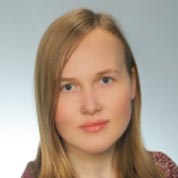 Eliza Maciejewska is a PhD student at Adam Mickiewicz University in Poznan, Poland. During her MA studies in Psychology, Eliza had a chance to work with children with Autism Spectrum Disorder (ASD) in various settings. She is particularly interested in communication in ASD.
Eliza Maciejewska is a PhD student at Adam Mickiewicz University in Poznan, Poland. During her MA studies in Psychology, Eliza had a chance to work with children with Autism Spectrum Disorder (ASD) in various settings. She is particularly interested in communication in ASD.
In her current research project, Eliza is planning to verify the role of social context in verbal communication of people with ASD, using Discourse Analysis.
Professor Douglas Maynard
My research and teaching focus on interaction in settings of everyday life. I draw on theoretical and empirical traditions in ethnomethodology, conversation analysis, and Goffmanian interaction order analysis, and have studied everyday talk as well as legal and medical discourse. Among other projects, a main emphasis currently is a project funded by the U.S. National Science Foundation to study the testing and diagnosis of Autism Spectrum Disorders. We are collecting digital video recordings of testing environments, discussions among clinical staff wherein they determine a diagnosis, and the informing interview where they present ASD diagnoses to family members.
Publications related to autism
- Maynard, Douglas W. 2005. "Social Actions, Gestalt Coherence, and Designations of Disability: Lessons from and about Autism." Social Problems 52:499-524.
- Maynard, Douglas W. and Courtney L. Marlaire. 1992. "Good Reasons for Bad Testing Performance: The Interactional Substrate of Educational Testing." Qualitative Sociology 15:177-202.
- Marlaire, Courtney L. and Douglas W. Maynard. 1990. "Standardized Testing as an Interactional Phenomenon." Sociology of Education 63:83-101.
T A Marie McDonald
 T A McDonald is an interdisciplinary and inter-methodology PhD candidate focused on the topic of autism covering the autism lifespan: from early childhood to adulthood. Prior to attending graduate school she has worked in intervention and support with a wide range of individuals with disabilities of different ages, including autism. Finally, she is the parent of an adult son with an autism spectrum diagnosis.
T A McDonald is an interdisciplinary and inter-methodology PhD candidate focused on the topic of autism covering the autism lifespan: from early childhood to adulthood. Prior to attending graduate school she has worked in intervention and support with a wide range of individuals with disabilities of different ages, including autism. Finally, she is the parent of an adult son with an autism spectrum diagnosis.
Audrey Mejza
Audrey is a recent graduate of Hofstra University's Forensic Linguistics Master's program (USA). For my capstone project, Audrey conducted a conversational analysis on three undergraduate students with ADHD, finding that the participants used more overlap and have more comfortability with overlap than was reflected in the literature on overlap in conversational analysis. Audrey is very interested in all forms of neurodivergence, including ADHD and Autism, and did a great deal of research into language patterns with autistic people before scaling the study back to focus on ADHD.
Prof Fernanda Miranda da Cruz
Fernanda Miranda da Cruz is a professor in the Department of Languages at the Federal University of São Paulo (UNIFESP), São Paulo, Brazil. Her research interests are interactions in which autistic and non-autistic people participate. Her research is based on corpus of interaction in institutional, school and therapeutic environments. His analyses are based on the field of conversation analysis, with interests in the multimodal constitution of interactions.
Publications related to autism
- CRUZ, FERNANDA MIRANDA DA. Multimodal interaction analysis of non-lexical vocalizations in low-verbal autistic children. CLINICAL LINGUISTICS & PHONETICS, v. 13, p. 1-22, 2022.
- CRUZ, FERNANDA MIRANDA DA; BALDAN, R. K. ; MELO, V. S. Dá zoom na imagem: configurações interacionais experimentadas no contexto escolar durante a pandemia da COVID-19.. Revista do GEL, v. 20, p. 77-102, 2024.
- COSTA, A. A. R. ; CRUZ, FERNANDA MIRANDA DA . A escolarização de estudantes autistas: desvelando as produções teóricas acadêmicas. FUCAMP Cadernos, v. 32, p. 22-42, 2024.
- CAMILO, SIMONI ; CRUZ, FERNANDA MIRANDA DA ; CAETANO, SHEILA C ; PERISSINOTO, JACY ; TAMANAHA, ANA CARINA . Pre-verbal and verbal pattern as predictors for the implementation of the Picture Exchange Communication System (PECS) in autistic children. REVISTA CEFAC (ONLINE), v. 25, p. e5823-e5823, 2023.
- SANTOS, CAROLINA ; MIRANDA DA CRUZ, FERNANDA ; PERISSINOTO, JACY ; TAMANAHA, ANA CARINA . Investigando a atenção compartilhada de crianças com Transtorno do Espectro do Autismo em sessões de musicoterapia.
- SUGAHARA, M. ; CAMILO, S. ; SCATTOLIN, M. ; CRUZ, FERNANDA MIRANDA ; PERISSINOTO, J. ; TAMANAHA, A. C. Estudo exploratório sobre análise multimodal da atenção compartilhada. AUDIOLOGY - COMMUNICATION RESEARCH (ACR), v. 27, p. e2447, 2022.
- CRUZ, F. M.; COTS, C. P. Práticas corporificadas de construção da atenção conjunta em interações de uma criança diagnosticada com Transtorno do Espectro do Autismo. Revista intercâmbio, v. XLVII, p. 112-136, 2021.
- CRUZ, FERNANDA MIRANDA; TAMANAHA, ANA CARINA . Do silêncio às ações corporificadas em interações de crianças com Transtorno do Espectro do autismo não-verbais. Calidoscópio, v. 19, p. 209-223, 2021.
- CRUZ, FERNANDA MIRANDA DA; GUERRA, ANA CAROLINE LOPES GOMES ; TAMANAHA, ANA CARINA ; PERISSINOTO, JACY . Ações corporificadas e construção de turnos em uma interação entre terapeuta e criança com Transtorno do Espectro Autista (TEA). ESTUDOS LINGUÍSTICOS (SÃO PAULO. 1978), v. 50, p. 126-143, 2021.
- COTS, C. P. ; CRUZ, F. M. . As contribuições de uma análise sociointeracional dos recursos corporais e verbais para a compreensão das formas de interagir de uma criança com TEA (Transtorno do Espectro do Autismo). CALETROSCÓPIO, v. 8, p. 81-102-81, 2020.
- MEIRA, L. G. T. ; CRUZ, F. M. ; PERISSINOTO, J. ; TAMANAHA, A. C. Descrição e análise de repetições em interações de duas crianças com Transtorno do Espectro do Autismo. MIGUILIM - REVISTA ELETRÔNICA DO NETLLI, v. 9, p. 1073-1096, 2020.
- CRUZ, F. M. Documentação multimodal de interações com crianças com Transtorno do Espectro do Autismo: corpo, língua e mundo material. Calidoscópio, v. 16, p. 179-193, 2018.
Rosanna Murray
 I am a Psychology graduate and trainee Speech and Language Therapist, with a wealth of experience in working with people with autism in social care, education and recreational settings.
I am a Psychology graduate and trainee Speech and Language Therapist, with a wealth of experience in working with people with autism in social care, education and recreational settings.
I am currently completing my Masters thesis on conversational success in peer girls with autism through conversation analysis.
Dr Lindsey O'Dell
Publications related to autism
- Brownlow,C. And O’Dell,L. (in press) ‘Hard wired at the factory’? Autism as a form of biological citizenship. in Orsini,M. And Davidson,J. (eds) Critical autism studies: enabling inclusion, defending difference. University of Minnesota Press: Minnesota, USA.
- Bertilsdotter Rosqvist,H., Brownlow,C., and O’Dell,L. (in press) Exploring the potential for social networking among people with autism: Challenging dominant ideas of ‘friendship’. Scandinavian Journal of Disability Research
- Brownlow,C., O’Dell,L. and Bertilsdotter Rosqvist,H. (2013) Challenging representations of autism: Exploring possibilities for broadcasting the self on YouTube. Journal of Developmental Disability
- Bertilsdotter Rosqvist,H., Brownlow,C., and O’Dell.L. (2012) Mapping the social geographies of autism – on- and off-line narratives of neuro-shared and separate spaces. Disability & Society doi 10.1080/09687599.2012.714257
- Brownlow, C. and O’Dell,L. (2009) Critiques of theory of mind. Intellectual and Developmental Disorders 47(6): 473-478
- Brownlow,C. and O’Dell,L. (2006) Constructing an autistic identity: AS voices online. Mental Retardation 44(5): 315-321.
- O’Dell,L. and Brownlow,C. (2006) Analysing media representations of the safeness/dangerousness of MMR. British Journal of Learning Disabilities 33(4): 194-199
- Brownlow,C. and O'Dell,L. (2002) Ethical issues in researching online communities. Disability and Society 17(6): 685-694
Professor Alison Pilnick
I have a broad interest in interaction between health and social care professionals and their clients across a wide range of settings. I also have a more specific interest in the way that talk-based interventions are delivered in health and social care, and how we judge the integrity of these interventions.
Publications related to autism
- Pilnick, A. and James, D. (2013) “I'm thrilled that you see that”: Guiding parents to see success in interactions with children with deafness and autistic spectrum disorder, Social Science and Medicine, 99: 89-101.
Dr John Rae
 My research aims to better understand the interactional skills and challenges shown by people with ASD, and by people (e.g. parents, teachers, peers) interacting with them. I’m particularly interested in multimodal interaction, that is, how talk, gesture, and objects are used together.
My research aims to better understand the interactional skills and challenges shown by people with ASD, and by people (e.g. parents, teachers, peers) interacting with them. I’m particularly interested in multimodal interaction, that is, how talk, gesture, and objects are used together.
My research into interactions involving participants with ASD is part of a broader interest in how human social interaction works.
Publications related to autism
- 2015 Ramey, M., & Rae, J. (2015). Parents’ Resources for Facilitating the Activities of Children with Autism at Home. J.N. Lester, & M. O'Reilly (Eds.). The Palgrave Handbook of Child Mental Health (pp. 459-479). London: Palgrave Macmillan UK.
- 2014 Korkiakangas, T., & Rae, J. (2014). The interactional use of eye-gaze in children with autism spectrum disorders. Interaction Studies, 15(2), 233-259.
- 2013 Korkiakangas, T., & Rae, J.P. (2013). Gearing up to a New Activity: How Teachers use Object Adjustments to Manage the Attention of Children with Autism. Augmentative and Alternative Communication, 29(1): 83–103. ISSN 0743-4618 print/ISSN 1477-3848 online DOI: 10.3109/07434618.2013.767488.
- 2012 Korkiakangas, T.K, Rae, J.P., & Dickerson, P. (2012). The interactional work of repeated talk between a teacher and a child with autism. Journal of Interaction Research in Communication Disorders, 3(1), 1–25. doi: 10.1558/jircd.v3i1.1.
- 2010 Stribling, P., & Rae, J. (2010). Interactional analysis of scaffolding in a mathematical task in ASD. In H. Gardner and M. Forrester (Eds.), Analysing Interactions in Childhood Insights from conversation analysis (chapter 10). New York: Wiley.
- 2009 Stribling, P., Rae, J., & Dickerson, P. (2009). Using conversation analysis to explore the recurrence of a topic in the talk of a boy with an autism spectrum disorder. Clinical Linguistics, & Phonetics, 23, 555 – 582.
- 2007 Dickerson, P, Stribling, P., & Rae. J. (2007). Tapping into interaction: How children with Autistic Spectrum Disorders design and place tapping in relation to activities in progress. Gesture 7, 271–303.
- 2007 Stribling, P. Rae, J., & Dickerson, P. (2007). Two forms of spoken repetition in a girl with autism. International Journal of Language and Communication Disorders, 42, 427 – 444.
- 2005 Stribling, P., Rae, J., Dickerson, P., & Dautenhahn, K. (2005/2006). “Spelling it out”: The design, delivery, and placement of 'echolalic' utterances by a child with an autism spectrum disorder. Issues in Applied linguistics. 15, 3-32.
- 2004 Dickerson, P., Rae, J., Stribling, P., Dautenhahn, K., & Werry, I. (2004). Autistic Children's Co-ordination of Gaze and Talk: Re-examining the 'Asocial' Autist. In K. Richards, & P. Seedhouse (Eds.), Applying Conversation Analysis (pp. 19-37). Basingstoke: Palgrave Macmillan.
Dr Johanna Rendle-Short
Dr Johanna Rendle-Short researches within the areas of spoken interaction and discourse. She utilises the methodology of conversation analysis (CA) or talk-in-interaction as a framework for analysing everyday talk and interaction. She applies conversation analysis to a variety of contexts, including, language and learning, media studies, and children and adults who are communicatively impaired. She is particularly interested in how children with Asperger’s Syndrome or High Functioning Autism communicate with those around them, both at home and in the school environment.
Publications related to autism
- Rendle-Short, J. (in press) Using conversational structure as an interactional resource: Children with Aspergers Syndrome and their conversational partners. In Communication in Autism, Trends in Language Acquisition Research series, edited by Joanne Arciuli and Jon Brock.
- Rendle-Short, J. (2002/2003) Managing Interaction: A Conversation analytic approach to the management of interaction by an 8 year-old girl with Asperger's Syndrome. Issues in Applied Linguistics 13/2: 161-186.
Dr Francisco Rodríguez-Muñoz

Francisco J. Rodríguez-Muñoz is a Francisco J. Rodríguez-Muñoz is Professor of Linguistics at the University of Almería (Spain). His main research line has focused on the pragmatic deficits in the oral speech of children with ASD (in particular, with Asperger syndrome) using conversation analysis. For example, he has contributed all the Spanish data to ASDBank in TalkBank. His current interests include facilitating ASD students’ linguistic learning and improving their communication skills from a cross-disciplinary point of view.
Publications related to autism
- Rodríguez Muñoz, F. J. (2020). Pragmática clínica. En M. V. Escandell-Vidal, J. Amenós y A. K. Ahern (Eds.), Pragmática (pp. 699-712). Madrid: Akal.
- Rodríguez Muñoz, F. J. y Muñoz Hernández, I. O. (2020). La comunicación unilateral en el síndrome de Asperger: la agilidad de turno y el índice de participación en los intercambios orales de niños con y sin déficit pragmático. Acta Scientiarum. Language and Culture, 42(2): 1-9.
- Rodríguez Muñoz, F. J. (2019). The construction of cooperative and inferential meaning by children with Asperger syndrome. Topics in Linguistics, 20(1): 54-67.
- Rodríguez Muñoz, F. J. (2017). La descompensación entre las habilidades de carácter gramatical y pragmático en el discurso oral de niños con síndrome de Asperger. Oralia, 20: 247-273.
- Rodríguez Muñoz, F. J. (2016). Evaluación de la competencia semiótico-discursiva a partir de las narraciones orales de niños con y sin síndrome de Asperger: superestructuras textuales y modelos mentales. Signa: Revista de la Asociación Española de Semiótica, 25: 959-985.
- Rodríguez Muñoz, F. J. (2015). The pausative pattern of speakers with and without high-functioning autism spectrum disorder from long silences. Pragmatics, 25(2): 229-249.
- Rodríguez Muñoz, F. J. (2015). Interrupciones y solapamientos en el discurso oral de hablantes con y sin síndrome de Asperger. Revista de Lingüística Teórica y Aplicada, 53(1): 13-34.
- Rodríguez Muñoz, F. J. (2015). Communicative Behavior of Speakers with Asperger Syndrome from the Quick Protocol for Pragmatic Assessment (QPPA). En M. F. Shaughnessy (Ed.), Asperger Syndrome. Risk Factors, Cognitive-Behavioral Characteristics and Management Strategies (pp. 141-149). Nueva York: Nova Science Publishers.
- Rodríguez Muñoz, F. J. (2014). Discourse markers and modal expressions in speakers with and without Asperger syndrome: a pragmatic-perceptive approach. Research in Language, 12(1): 1-25.
- Rodríguez Muñoz, F. J. (2014). Corpus oral de hablantes con desarrollo típico y síndrome de Asperger. Berlín: Logos.
- Rodríguez Muñoz, F. J. (2013). Pilot assessment of nonverbal pragmatic ability in people with Asperger syndrome. Psychology of Language and Communication, 17(3): 279-294.
- Rodríguez Muñoz, F. J. (2013). Evaluación pragmática de niños con síndrome de Asperger (Studies in Pragmatics, 25). Múnich: LINCOM.
- Rodríguez Muñoz, F. J. (2012). La conciencia pragmática de adultos con síndrome de Asperger. Revista de Logopedia, Foniatría y Audiología, 32(1): 21-31.
- Rodríguez Muñoz, F. J. (2011). La comunicación no verbal en pacientes con síndrome de Asperger: una experiencia de enseñanza virtual. Lenguaje y Textos, 34: 91-98.
- Rodríguez Muñoz, F. J. (2011). Estado de la cuestión y aproximación discursivo-comunicativa al síndrome de Asperger. En J. Fornieles, S. Requena y A. Bañón (Eds.), Lenguaje, comunicación y salud (pp. 249-276). Sevilla: Arcibel.
- Rodríguez Muñoz, F. J. y Ridao Rodrigo, S. (2011). La docencia virtual en el tratamiento comunicativo de enfermedades raras: descripción de un curso destinado a profesionales en síndrome de Asperger. Revista de Educación a Distancia, 3: 1-16.
- Ridao Rodrigo, S. y Rodríguez Muñoz, F. J. (2011). Enseñanza/aprendizaje de habilidades socio-comunicativas en el síndrome de Asperger. Innovación Educativa, 21: 305-316.
- Rodríguez Muñoz, F. J. (2010). Hacia una reformulación del espectro autista. Mente y cerebro, 45: 58-59.
- Rodríguez Muñoz, F. J. (2009). Síndrome de Asperger. Materiales y aproximación pragmalingüística. Valencia: Universidad de Valencia.
- Rodríguez Muñoz, F. J. (2009). Aspectos explicativos de comorbilidad en los TGD, el síndrome de Asperger y el TDAH: estado de la cuestión. Revista Chilena de Neuropsicología, 4(1): 12-19.
- Rodríguez Muñoz, F. J. (2007). Comunicación, autismo y síndrome de Asperger. Hacia un estado de la cuestión desde el punto de vista bibliográfico. Tonos Digital, 13: 1-37.
- Rodríguez Muñoz, F. J. (2024). The pedagogical potential of speech-language therapy materials for the teaching of idiomatic expressions in a foreign language. Applied Linguistics Review, 15(1): 241-261.
- Rodríguez Muñoz, F. J. (2023). De la lingüística clínica a la lingüística educativa. Una propuesta de investigación basada en corpus para el diseño de estrategias de intervención en el aula: el síndrome de Asperger o trastorno del espectro autista grado 1 como ejemplo. En V. Moreno Campos y F. J. Rodríguez Muñoz (Eds.), Didáctica de los trastornos del lenguaje, del habla y de la comunicación. Didáctica de la lengua desde una perspectiva inclusiva (pp. 99-119). Sevilla: Wanceulen.
- Rodríguez Muñoz, F. J. (2022). El valor pragmático del léxico en la base del desarrollo atípico de las habilidades comunicativas en el síndrome de Asperger. En R. A. Martín Vegas, C. V. Álvarez-Rosa, V. J. Marcet Rodríguez y M. Nevot Navarro (Eds.), La enseñanza del léxico (pp. 227-246). Salamanca: Ediciones de la Universidad de Salamanca.
Victoria Stafford
I am a research assistant at the Greenwood Institute of Child Health, University of Leicester, working with Dr. Michelle O’Reilly and Dr. Khalid Karim. My two primary areas of research are the psycho- educational needs of parents with children who have been diagnosed with Autism, and communication in initial assessment (triage) appointments at Child and Adolescent Mental Health Services (CAMHS).
The first area involves research into the psycho- education provided for parents whose children have been diagnosed with ASD. Through interviewing parents about their experiences we are trying to find out how we can better meet their psycho- educational needs around the time of their child’s diagnosis. This will hopefully lead to the development of an information tool aimed at these parents, to help them better understand their child’s diagnosis and the support available to them, in an easily accessible and readily available format.
My other research involves looking at the triage appointments at CAMHS, using qualitative methods. In these appointments clinicians screen children and young people who are referred for possible mental health concerns, to assess whether CAMHS is the right service to offer support, and indeed whether there is a mental health concern present. We are primarily interested in how this happens throughout the appointment, and how decisions are made, by looking at the interactions within it.
I am also a part time PhD student at the Greenwood Institute.
My research uses conversation analysis to explore the organisation of access to Child and Adolescent Mental Health Services that occurs during the triage appointments mentioned above. I am particularly interested in the variety of ways children and their families present their concerns as warranting CAMHS intervention, and the subsequent ‘negotiation’ between them and the clinicians as to whether there is a problem and the appropriate follow up options.
Dr Laura Sterponi
Merging my graduate degree training in developmental psychology (PhD, 2002) and in applied linguistics (PhD, 2004), I have developed a research program that is centrally concerned with the role of language and interaction in children’s development and education. Within this general program is included a central focus on the communication of and with children with autism. I employ discourse analytic methods to illuminate the interactional matrix of key features of autistic communication, such as echolalia, pronominal reversal/avoidance and literality. I hold that these linguistic phenomena associated with autism cannot be considered solely as epiphenomenal of an underlying disorder residing in the neurological substratum of the affected individual but need to be thought of as interactional outcomes. The turn design and interactional goals of those with whom the child with autism interacts can restrict the child’s own turns to form and content that do not reflect the child’s communicative potential. Conversely certain conversational patterns, or language games (à la Wittgenstein), can facilitate the child’s sustained involvement in interaction, his/her production of more complex utterances, and a higher level of attunement with his/her interlocutors.
Publications related to autism
- Sterponi, L. & Shankey, J. (2014). Rethinking echolalia: repetition as interactional resource in the communication of a child with autism. Journal of Child Language, 42(2), 275-304.
- Sterponi, L. & Shankey, J. (in press). Situating communicative (in)competence in (performative) context: Insights from autism. In S. Bornand & C Leguy (eds.), De compétences en performances…
- Sterponi, L. & Fasulo, A. (2010). How to go on: Intersubjectivity and progressivity in the communication of a child with autism. Ethos, 38(1), 116-142.
- Ochs, E., Solomon, O. & Sterponi, L. (2005). Limitations and transformations of habitus in child-directed communication. Discourse Studies, 7(4-5), 547-583.
- Sterponi, L. (2004). Construction of rules, accountability and moral identity by high-functioning children with autism. Discourse Studies, 6(2), Special Issue: Discourse and Autism. E. Ochs & O. Solomon (eds.), 207-228.
- Sterponi, L., de Kirby, K. and Shankey, J. (in press). Rethinking language in autism. Autism
Trini Stickle
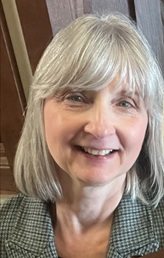
My research focuses on interactions that involve persons whose communication processes are affected by acquired or developmental cognitive issues. I use conversation analysis and interactional linguistics to document how participants use verbal, vocal, and embodied resources to collaboratively produce meaningful social actions. Specifically, I rely on these methods to highlight differences noted by the local participants in the use or interpretation of interactional resources and the strategies employed as they continue to negotiate their conversations. I am presently investigating the aging experiences of immigrant and refugee populations living in southern regions of the US and the effects intergenerational book clubs have on the emotional and cognitive well-being of all participants, with a particular focus on reducing the ill-effects of loneliness.
Betty Yu
 My research focuses on heritage language maintenance and bilingualism in minority-language families of children with communication disabilities, in particular, children on the autism spectrum. I am interested in understanding bilingual communication between parents and their children with autism as an interactional achievement not only defined by the management of two or more linguistic codes, but also by the coordination of sociocultural meaning within family routines. I am also interested in understanding how those parent-child interactions are shaped by the broader discourses and practices within family-school relationships.
My research focuses on heritage language maintenance and bilingualism in minority-language families of children with communication disabilities, in particular, children on the autism spectrum. I am interested in understanding bilingual communication between parents and their children with autism as an interactional achievement not only defined by the management of two or more linguistic codes, but also by the coordination of sociocultural meaning within family routines. I am also interested in understanding how those parent-child interactions are shaped by the broader discourses and practices within family-school relationships.
Publications related to autism
- Yu, B. & Luo, F. (Accepted for Publication 2016). Augmentative and alternative communication. In G. Hao & Z. Shao (Eds.), Autism spectrum disorders: Assessment and intervention. Chongqing, China: Chongqing Publishing Group.
- Yu, B. (2015). Bilingualism as Conceptualized and Bilingualism as Lived: A Critical Examination of the Monolingual Socialization of a Child with Autism in a Bilingual Family. Journal of Autism and Developmental Disorders. doi:10.1007/s10803-015-2625-0
- Soto, G. & Considerations for the provision of services to bilingual children who use augmentative and alternative communication. Augmentative and Alternative Communication, 30(1), 83-92.
- Yu, B. (2013). Issues in bilingualism and heritage language maintenance: Perspectives of minority-language mothers of children with autism spectrum disorders. American Journal of Speech-Language Pathology, 22(1), 10-24. doi:10.1044/1058-0360(2012/10-0078)
Nor Azrita Mohamed Zain
I received an undergraduate degree in speech sciences (BSc (Hons) in Speech Sciences) from the National University of Malaysia (UKM) in 2003. Afterwards, I worked as a speech and language therapist in a few private clinics before I started working as an assistant lecturer at the International Islamic University of Malaysia (IIUM). I received an MPhil degree from the University of Queensland, Australia in 2008. For my master’s project I investigated the applicability of two language assessments, the Malaysian Developmental Language Assessment Kit and the Pragmatic Profile of Everyday Communication Skills in Children for use with bilingual Malay-speaking children. I then returned to the IIUM to work as a full time lecturer before leaving again to further my studies. Since November 2011, I am registered as a PhD student at the Department of Human Communication, University of Sheffield.